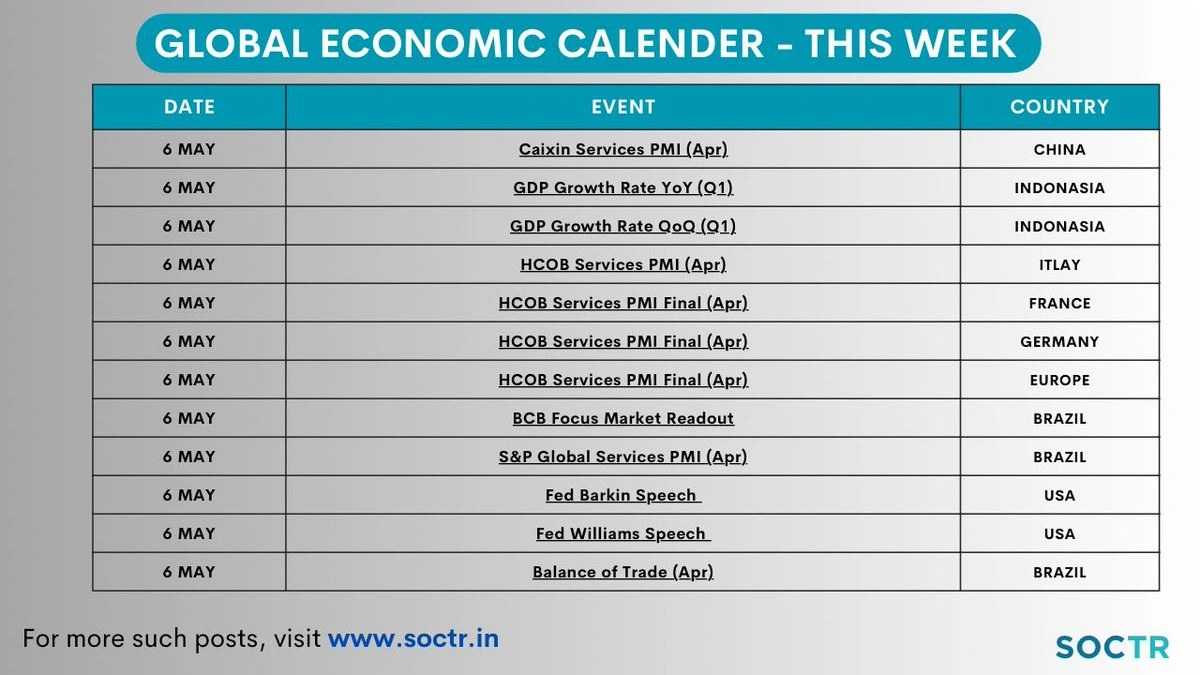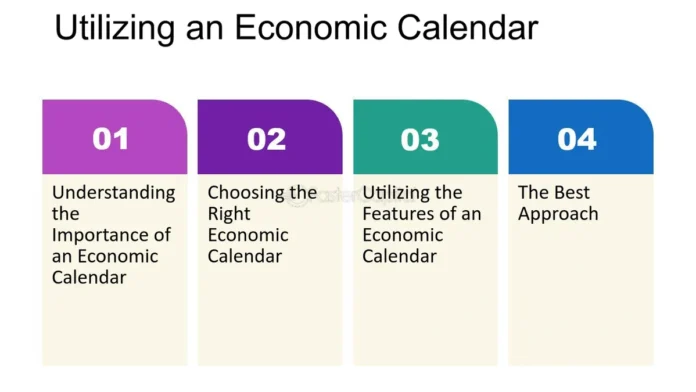Ever feel like the stock market is speaking a language you don’t understand? You’re not alone. A big part of understanding it lies in deciphering the economic calendar . It’s not just a list of dates; it’s a roadmap to potential market volatility and, more importantly, opportunity. What fascinates me is how many people overlook it, thinking it’s only for seasoned traders. Let’s be honest, it can feel intimidating at first glance, but it doesn’t have to be.
Think of the economic calendar events like a series of announcements from a company you’re invested in. Some announcements are minor, barely causing a ripple. Others? They can send the stock soaring or plummeting. The economic calendar is the schedule for all the major (and minor) economic announcements that impact the global market.
Why Should You Even Care About the Economic Calendar?

Here’s the thing: ignoring the economic calendar is like driving with your eyes closed. You might get lucky for a while, but eventually, you’re going to crash. What makes the calendar so important? It gives you a heads-up on when major economic data is being released. This includes things like GDP figures, employment numbers (like the unemployment rate ), inflation reports (think CPI and PPI), and interest rate decisions from central banks. These events can trigger significant market movements. But, it’s not just about avoiding crashes, it’s about positioning yourself to take advantage of the opportunities that volatility creates.
A common mistake I see people make is treating the economic calendar as gospel. It’s not a crystal ball, but it’s a powerful tool for anticipating potential market shifts. Remember, the market is forward-looking. It’s not just reacting to what is happening, but what it thinks will happen. The calendar helps you understand those expectations.
Cracking the Code | Key Indicators and Their Impact
Let’s break down some of the heavy hitters on the economic indicator calendar . And let me rephrase that for clarity, we’re going to focus on the indicators that are most likely to cause big waves.
- Gross Domestic Product (GDP): This is the broadest measure of economic activity. A strong GDP number generally indicates a healthy economy, which is good for stocks. But, a rapidly growing GDP can also fuel inflation fears, potentially leading to interest rate hikes.
- Inflation Data (CPI & PPI): The Consumer Price Index (CPI) measures changes in the price of consumer goods and services. The Producer Price Index (PPI) measures wholesale price changes. High inflation can erode purchasing power and prompt central banks to raise interest rates, which can hurt stocks.
- Employment Numbers (Unemployment Rate & Non-Farm Payroll): A low unemployment rate and strong job growth are generally positive signs. However, too much job growth can also contribute to inflation. Non-Farm Payroll measures the number of jobs added outside of the agricultural sector, and is often used as a proxy for the overall health of the labor market.
- Interest Rate Decisions: Central banks use interest rates to control inflation and stimulate economic growth. Higher rates can cool down an overheated economy, while lower rates can encourage borrowing and spending.
- Consumer Confidence Index (CCI): Consumer spending drives a significant portion of the economy. A high CCI suggests that consumers are optimistic about the future and willing to spend money, which boosts economic growth. A low CCI signals caution and potential economic slowdown.
As per the guidelines mentioned in various financial resources, each of these components can cause short term and long term fluctuations.
Turning Economic Data into Trading Strategies
Okay, so you know what the economic calendar is and why it matters. But how do you actually use this information to make better trading decisions? That’s the million-dollar question, isn’t it? First, pay attention to the consensus estimates. These are the average predictions from economists about what the data will show. Big deviations from these estimates are what really move the market. If the actual number is significantly higher or lower than expected, be prepared for volatility.
It’s important to consider the broader economic context. For example, a strong GDP number might be bullish for stocks in normal times. But if inflation is already high, it could actually trigger a sell-off as investors anticipate tighter monetary policy. Also, don’t focus on just one data point. Look at the big picture and how different indicators corroborate or contradict each other.
Here’s a little secret I’ve picked up over the years: the market often reacts before the actual data is released. This is because sophisticated traders are constantly analyzing leading indicators and positioning themselves accordingly. By the time the news is out, the initial reaction may already be priced in.
Beyond the Numbers | Qualitative Factors and the Human Element
While the economic calendar release schedule provides a quantitative framework, understanding the market’s reaction requires considering qualitative factors. The market isn’t a cold, calculating machine. It’s driven by human emotions like fear, greed, and uncertainty. A seemingly minor data point can trigger a massive sell-off if it confirms existing fears or anxieties.
Pay attention to the tone and commentary from central bank officials. Their words can be just as important as their actions. Are they hawkish (leaning towards higher interest rates) or dovish (leaning towards lower rates)? Also, be aware of geopolitical events and other unexpected shocks. These can quickly overshadow even the most important economic data.
Staying Ahead of the Curve | Resources and Tools
Fortunately, there’s no shortage of resources to help you stay informed. Major financial news websites like Bloomberg, Reuters, and MarketWatch all have comprehensive financial events calendars . Many brokerage platforms also offer integrated economic calendars with real-time updates and analysis. Don’t overwhelm yourself with too much information. Focus on the indicators that are most relevant to your investment strategy.
Here are some LSI Keywords incorporated in the text: Market Volatility Economic Indicator Calendar Financial Events Calendars Economic Calendar Events Economic Calendar Release Schedule Unemployment Rate
FAQ | Your Economic Calendar Questions Answered
What if I don’t understand all the economic terms?
Start with the basics and gradually expand your knowledge. Investopedia is a great resource for defining financial terms.
How often is the economic calendar updated?
Most calendars are updated daily with the latest release dates and estimates.
What’s the best way to track economic data?
Use a reliable financial news website or a brokerage platform with an integrated economic calendar.
Is the economic calendar useful for long-term investors?
Yes! Understanding the economic backdrop can help you make more informed investment decisions, even if you’re not a day trader.
Can I rely solely on the economic calendar for my trading decisions?
No. Use it as one tool among many, and always consider the broader economic context and your own risk tolerance.
What if the market reacts differently than I expected to an economic release?
That’s part of the game. Markets are unpredictable. Analyze what happened, learn from your mistakes, and adjust your strategy accordingly.
So, there you have it. The economic calendar isn’t just a boring list of dates and numbers. It’s a window into the forces that drive the market and shape our financial future. By understanding how to read and interpret it, you can gain a significant edge in the investing game. Don’t be intimidated. Start small, stay curious, and keep learning. The market rewards those who do their homework.

